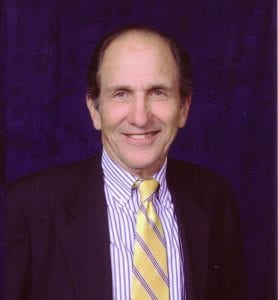WHEN: Friday 27 July, 12pm
Where:
The University of Auckland
Lecture Theatre 018
ClockTower (Building 105)
22 Princes Street
THE PUBLIC POLICY INSTITUTE AND THE SCHOOL OF POPULATION HEALTH PRESENT:
“US health care: the Affordable Care Act, Medicare, current politics and what we can expect of the future“
Theodore. R. Marmor, Professor Emeritus, Yale University
The American politics of health care reform are confused and confusing. The US spends more than $3.4 trillion on medical care and few are content. Medicare—the social insurance program for older Americans and the seriously disabled is broadly popular but organizationally almost impossible to understand. The poor law program Medicaid is in the news as well as state governors fight over whether to accept expansion as the right step towards increasing health financing or whether poor beneficiaries should be subject to work and drug tests. And then there is the Obamacare legacy — a bewilderingly complex reform of different parts, expanding coverage not well understood but market oriented, public regulation of commercial health insurance to make it more social and easier to get with pre-existing conditions.
“Health Reforms across the world; the experience of 12 small and medium sized nations”
Kieke G.H. Okma, Associate Professor, Catholic University, Leuven, Belgium
This research project, based on our earlier study of six small and medium size nations (New Zealand, Taiwan, Singapore, Israel, Switzerland and The Netherlands) has now expanded to twelve countries that also include Chile and Ecuador, Ghana, Tanzania, The Czech Republic and Slovenia. The twelve nations, with wide variation in geography, populations, income levels, cultural backgrounds and political systems have faced similar problems of their healthcare. They discussed a similar range of policy options but in the end, chose very different pathways of their healthcare reforms. The central puzzle of the study is: What explains that divergence? To address that question, we applied analytical frameworks from economic theory to describe the basic elements of health care systems (financing, contracting, ownership, management and regulation as well as options for ‘voice’ and ‘exit’) and used basic notions of political science, namely that ‘ideas, interests and institutions’ (and ‘windows of opportunity’) help explain the shaping and outcome of public policy-making.
Professor Theodore Ted Marmor, Professor Emeritus, Yale University
Professor Marmor’s scholarship primarily concerns welfare state politics and policy in North America and Western Europe. Marmor has authored or coauthored 11 books, published over a hundred articles in scholarly journals, and written numerous op-eds in U.S. and Canadian newspapers. He received his PhD from Harvard University in 1966.He began his career as a special assistant to Wilbur Cohen Secretary of HEW in the mid-1960s. He was associate dean of Minnesota’s School of Public Affairs, faculty member at the University of Chicago, the head of Yale’s Center for Health Services, a member of President Carter’s Commission on the National Agenda for the 1980s, and a senior social policy advisor to Walter Mondale in the Presidential campaign of 1984. Major books are The Politics of Medicare (2nd ed 2000) and America’s Misunderstood Welfare State with Yale colleagues Mashaw and Harvey (l992).
Associate Professor Kieke Okma, Catholic University Leuven, Belgium
Kieke Okma has worked with a variety of government agencies and international organizations in The Netherlands and abroad for over 25 years. She received a PhD from the Medical Faculty at the University of Utrecht. She is on the editorial boards of Health Policy, the Journal of Health Politics, Policy and Law and the Journal of Health Services Research and Policy. Dr. Okma has lectured and published on a broad range of issues in health policy, health politics and international comparison. Her latest project is Healthcare Reforms Across the World, the healthcare experience of twelve small and medium-sized nations, published as two articles in American Affairs in 2018 and as a book published by World Scientific in 2019.



